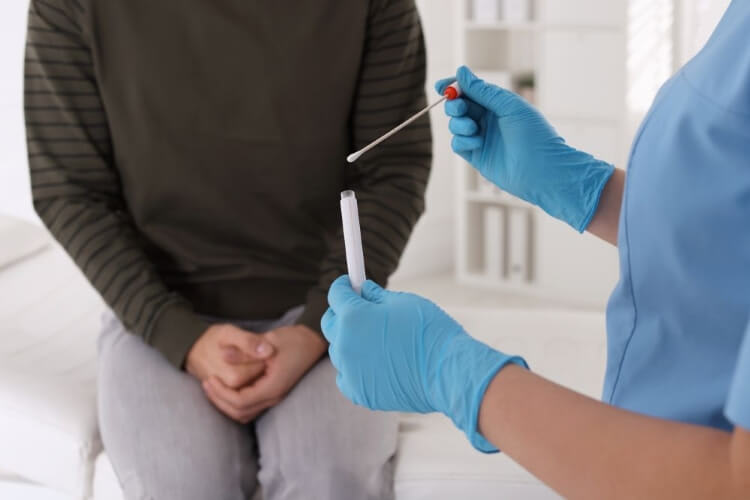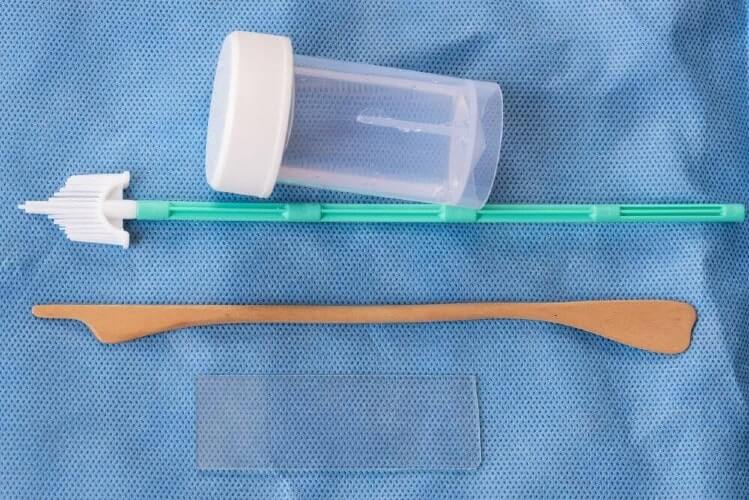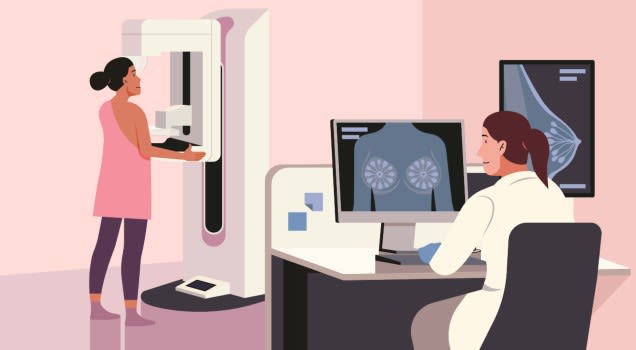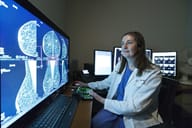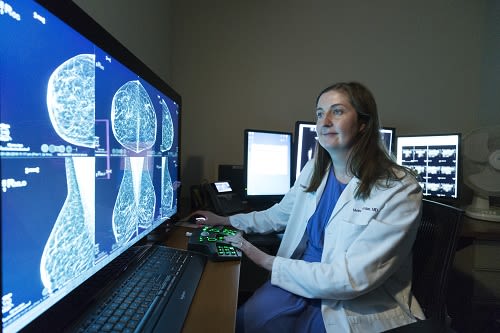By Scott Chudnoff, MD, MSc, FACOG, Chair, Department of OB/GYN
You’re settling into life as new parents (congratulations!) and days are full of highs and lows. In between the smiles, diaper changes and sleep-deprived nights, the very last thing on your mind is having sex after baby.
Sex after childbirth. It’s an important part of any relationship and for many couples, gets put on the back burner when baby enters the picture. Why?
Let’s be clear: these are all just some of many valid reasons why couples have less sex after childbirth. What am I getting at here? I have a story about a patient that inspired me to help break the taboo around sex as a topic of conversation between doctors and patients. In my residency training days, I was seeing women for post-partum visits. I was speaking with one patient about how she was feeling and asked all of the questions I was supposed to at the time. Then, as our visit ended and my hand touched the doorknob to walk out, she said, “Wait. Dr. Chudnoff, I forgot to ask you, I’m having a hard time with sex.”
Something clicked. I thought about that particular visit for the next few weeks and felt compelled to encourage women to talk about sexual intercourse as part of their post-partum visits. I was astounded at the number of women who were having sexual difficulty or sexual dysfunction after labor and delivery. I wanted to help break the notion that sex is a forbidden topic. That one experience forged my path to becoming certified as a sexuality counselor.
While as a society, we are far from breaking the taboo and talking openly about sex with our doctors, it’s my goal to help my post-partum patients understand the following:
So if you are having issues with sex after baby, or at any point in your life, bring the issue up with your gynecologist. We care about your wellness, no matter how uncomfortable it may be to discuss.
Dr. Scott Chudnoff specializes in women’s health, gynecology, minimally invasive surgery, medical technology and medical education, and is certified as a sexuality counselor by the American Association of Sexuality Educators, Counselors and Therapists (AASECT).
Looking for Post-Partum Support?
We're here to help. Contact the Women's Specialty Center at 203.276.2030.You’re settling into life as new parents (congratulations!) and days are full of highs and lows. In between the smiles, diaper changes and sleep-deprived nights, the very last thing on your mind is having sex after baby.
Sex after childbirth. It’s an important part of any relationship and for many couples, gets put on the back burner when baby enters the picture. Why?
- You and your partner are utterly exhausted and just want to sleep.
- Women can be afraid of the pain from sex after childbirth.
- You tried once and sex just wasn’t as enjoyable as it used to be.
- You are unhappy with how your body looks.
- Your hormones feel all over the place and you’re “off.”
- You’re too embarrassed to talk to your OB/GYN about it, so you accept this as part of your new normal.
Let’s be clear: these are all just some of many valid reasons why couples have less sex after childbirth. What am I getting at here? I have a story about a patient that inspired me to help break the taboo around sex as a topic of conversation between doctors and patients. In my residency training days, I was seeing women for post-partum visits. I was speaking with one patient about how she was feeling and asked all of the questions I was supposed to at the time. Then, as our visit ended and my hand touched the doorknob to walk out, she said, “Wait. Dr. Chudnoff, I forgot to ask you, I’m having a hard time with sex.”
Something clicked. I thought about that particular visit for the next few weeks and felt compelled to encourage women to talk about sexual intercourse as part of their post-partum visits. I was astounded at the number of women who were having sexual difficulty or sexual dysfunction after labor and delivery. I wanted to help break the notion that sex is a forbidden topic. That one experience forged my path to becoming certified as a sexuality counselor.
While as a society, we are far from breaking the taboo and talking openly about sex with our doctors, it’s my goal to help my post-partum patients understand the following:
- Before having a baby, you were a person. It’s easy to get caught up in the details a baby brings, but making time for you and your partner will make you the best parents you can be in the long run.
- If you had problems with sex before the baby, you will likely continue to have those problems after the baby is here. Many people mistakenly believe that after having a baby many issues such as pain will suddenly resolve.
- Don’t feel shy about talking to your doctor about sex. Easier said than done, but remember they’re there to listen. Come up with a list of your symptoms and questions, and don’t leave without an action plan.
- Don’t be surprised if they delve deeper and ask you specific questions about your ability to reach orgasm or how sex was portrayed as part of your upbringing. The more detailed the questions, the better the gynecologist can help.
- Restoring function to your pelvic floor involves more than just kegel exercises. In fact, kegels aren’t right for everyone. It’s important to find a pelvic floor physical therapist who can work with you on an individual basis for however long you’d like.
- Get screened for post-partum depression. Post-partum depression (PPD) is often a major barrier to sexual desire or intimacy. We’re supposed to ask women a series of questions at their follow-up after birth that would determine their risk for PPD. If you receive a follow-up call for a screening, please don’t ignore it.
So if you are having issues with sex after baby, or at any point in your life, bring the issue up with your gynecologist. We care about your wellness, no matter how uncomfortable it may be to discuss.
Dr. Scott Chudnoff specializes in women’s health, gynecology, minimally invasive surgery, medical technology and medical education, and is certified as a sexuality counselor by the American Association of Sexuality Educators, Counselors and Therapists (AASECT).
Featured Expert/ Author



